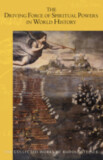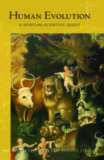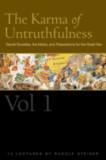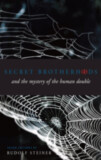Goetheanism
An Impulse of Transformation and Resurrection (CW 188)
- Publisher
Rudolf Steiner Press - ISBN 9781855846678
- Language English
- Pages 280 pp.
- Size 6" x 9.25"
12 lectures to Society members, Dornach, Switzerland, Jan. 3 – Feb. 2, 1919 (CW 188)
“There will be a resurrection—a resurrection that should not be imagined politically...but it will be a resurrection. Goetheanism still rests in the grave as far as external culture is concerned. But Goetheanism must rise again.” — Rudolf Steiner
During the first winter following World War I, Rudolf Steiner appealed to the spirit of Central Europe—characterized here as “Goetheanism”—which had languished for decades. Only such a spiritual force could resolve the pressing social, national, and international issues of that time. A new constellation of polarized hostile opposition emerged following the war, with the East and Bolshevism on one side and the victorious West and Americanism on the other. In the center—with no clear role or hope for the future—was a defeated Central Europe. But this “center” must not become a vacuum, implored Steiner; rather, it needs to discover its true world-historical task.
In this context, Steiner speaks with deep seriousness and urgency about the work of Goetheanism, which begins with understanding the threefold organization of human beings and leads to the threefold social structure. Steiner also discusses the key role of the consciousness soul in the present epoch and how Schiller’s Aesthetic Letters and Goethe’s fairytale (The Green Snake and the Beautiful Lily) are linked to contemporary challenges. Moreover, he discusses a multitude of seemingly diverse but interrelated themes, such as the migration of peoples in the past and present, the thinking of John of the Cross, and the modern path of spirit cognition.
This first English publication of these historic lectures features an introduction by Christian von Arnim.
This volume is a translation from German of Der Goethanismus, ein Umwandlungsimpuls und Auferstehungsgedanke: Menschenwissenschaft und Sozialwissenschaft (GA 188).Rudolf Steiner
Rudolf Steiner (b. Rudolf Joseph Lorenz Steiner, 1861–1925) was born in the small village of Kraljevec, Austro-Hungarian Empire (now in Croatia), where he grew up. As a young man, he lived in Weimar and Berlin, where he became a well-published scientific, literary, and philosophical scholar, known especially for his work with Goethe’s scientific writings. Steiner termed his spiritual philosophy anthroposophy, meaning “wisdom of the human being.” As an exceptionally developed seer, he based his work on direct knowledge and perception of spiritual dimensions. He initiated a modern, universal “spiritual science” that is accessible to anyone willing to exercise clear and unbiased thinking. From his spiritual investigations, Steiner provided suggestions for the renewal of numerous activities, including education (general and for special needs), agriculture, medicine, economics, architecture, science, philosophy, Christianity, and the arts. There are currently thousands of schools, clinics, farms, and initiatives in other fields that involve practical work based on the principles Steiner developed. His many published works feature his research into the spiritual nature of human beings, the evolution of the world and humanity, and methods for personal development. He wrote some thirty books and delivered more than six thousand lectures throughout much of Europe. In 1924, Steiner founded the General Anthroposophical Society, which today has branches around the world.








